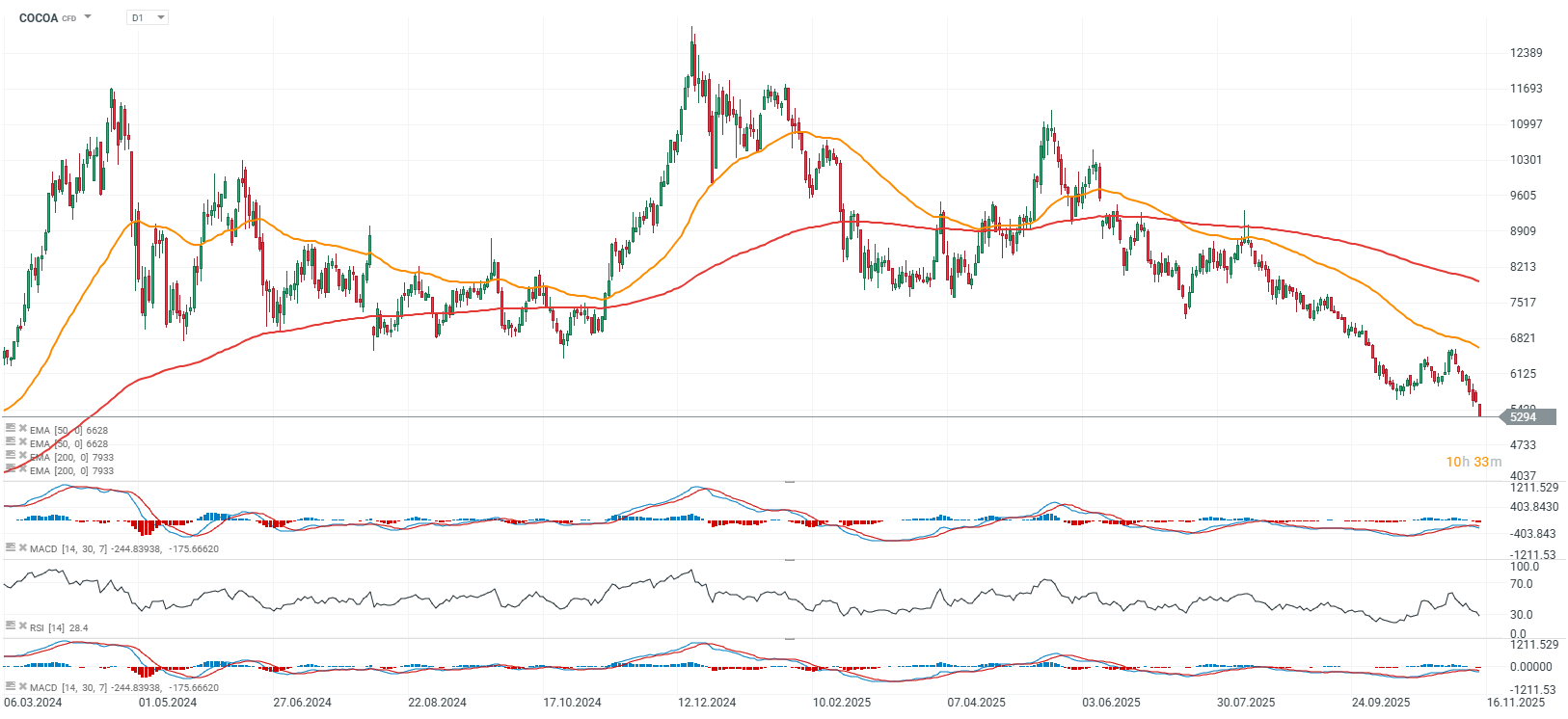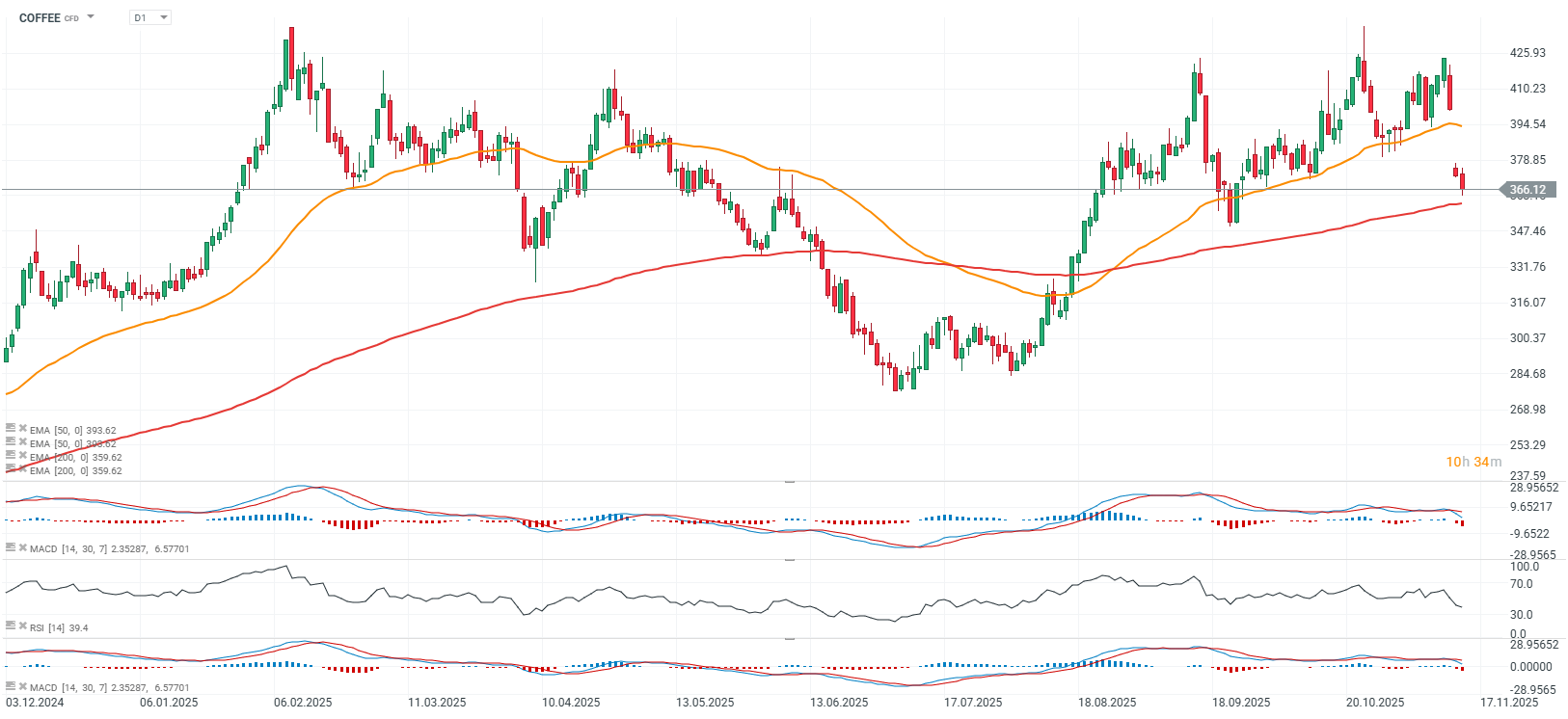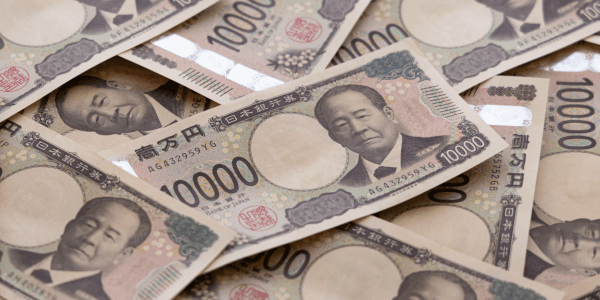Today, futures on coffee and cocoa on ICE are losing ground. The reason of that fact is that the White House unveiled new trade framework deals with Argentina, Guatemala, El Salvador, and Ecuador aimed at lowering U.S. grocery prices — particularly coffee, cocoa bananas, beef, and some other agricultural imports. The announcement follows repeated promises by President Donald Trump and key allies to deliver relief on rising food prices, but officials avoided giving any concrete estimates of how much these agreements might reduce costs for consumers. The US official commented yesterday that '(...) We expect a positive effect on coffee and cocoa from deals'. Markets see that move as a signal for improving supply conditions and potentially significant tariff relief, especially with Brazil.
-
Inflation data (September 2025 CPI) shows sharp increases in key imported foods:
-
Coffee +18.9%
-
Bananas +6.9%
-
Beef +14.7%
-
-
Economists point out that some of these price surges stem from Trump-era tariffs — especially on goods the U.S. cannot produce in large quantities, like coffee. Despite the new agreements, 50% tariffs on Brazil, one of America’s most important suppliers of coffee and beef, remain in place, limiting potential price relief. Tariff rules will remain unchanged for
-
Guatemala, El Salvador, Ecuador: reciprocal tariff stays at 10%
-
Ecuador: an additional reciprocal tariff stays at 15%
-
-
The White House says the new frameworks will remove tariffs on specific qualifying products that cannot be produced in sufficient volume in the United States — but details about which products and in what quantities remain vague.
-
For Argentina, the U.S. plans to drop tariffs on certain natural resources and pharmaceutical-related inputs that are not domestically available.
-
Administration officials emphasized possible positive effects on prices for coffee, cocoa — but openly admitted they cannot quantify the impact or guarantee how much savings will reach consumers.
-
Officials noted that the actual price effects depend on how tariffs were absorbed along the supply chain, whether by importers, wholesalers, or retailers — and also on uncontrollable factors like weather-driven crop disruptions.
-
The White House expects the reciprocal trade agreements with the four countries to be signed and public within two weeks, though many existing non-tariff barriers remain.
-
These deals follow a broader pattern of the administration’s trade efforts during Trump’s Asia trip, where similar framework agreements were announced with Vietnam (a key Robusta coffee producer) and Thailand, and full reciprocal agreements were detailed with Malaysia and Cambodia.
COCOA and COFFEE charts (D1 interval)
Futures on both cocoa and coffee are declining today. Coffee falls to a 2-month low, while cocoa is the cheapest since the beginning of the 2024. RSI for cocoa fell below 30 signalling oversold conditions. In the case of Coffee we can see the reversed head and shoulder pattern with key support zone between 315–320 pts.

Source: xStation5

Source: xStation5

Chart of the Day: USD/JPY highly volatile ahead of US CPI

Morning Wrap: Global sell-off in the technology sector (13.02.2026)

Daily summary: Silver plunges 9% 🚨Indices, crypto and precious metals under pressure

US100 loses 1.5% 📉


